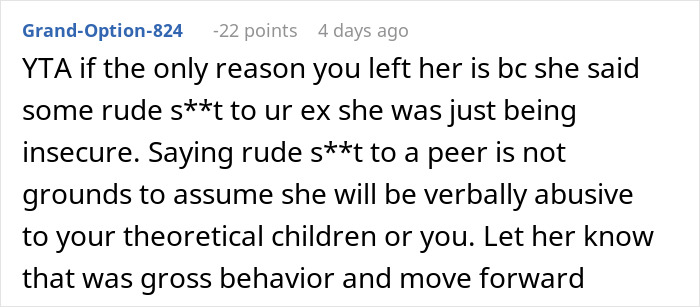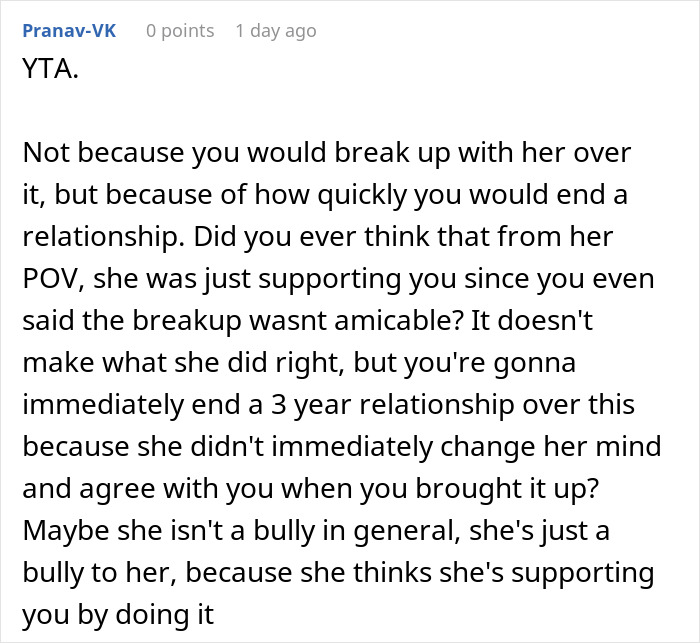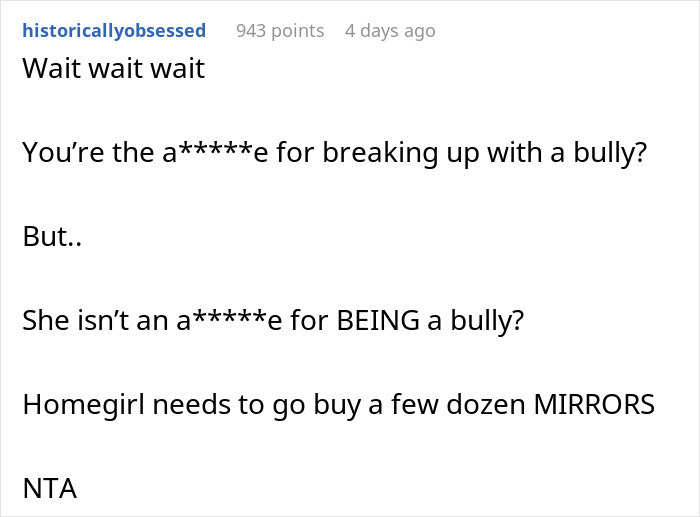Even when we think we’ve left our childhood bullies behind, unfortunately, some people never outgrow that persona. In fact, nearly one in three US adults report that they have been bullied, which often negatively impacts their health.
Redditor cChance_Digc was even engaged to one without knowing it. This came to light after an encounter with his ex-girlfriend, who received his fiancée’s rude comments about her body. When he heard this, he decided to take action, as he refused to be married to a bully.
Bullying doesn’t always stop once we grow up
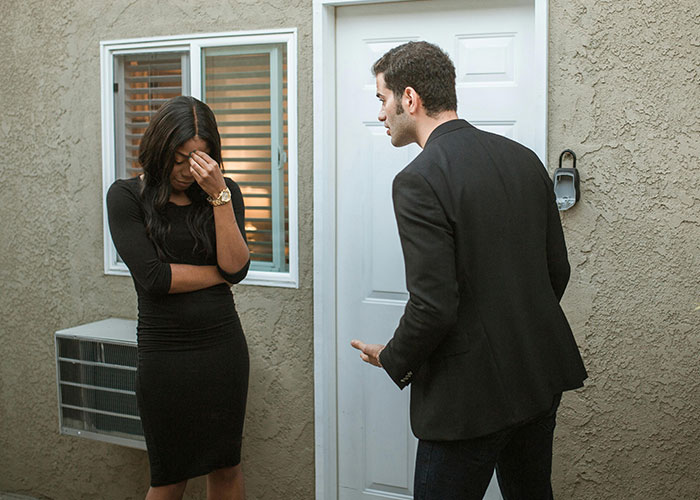
Image credits: RDNE Stock project / pexels (not the actual photo)
This man learned this after he heard his fiancée bullying his ex-girlfriend
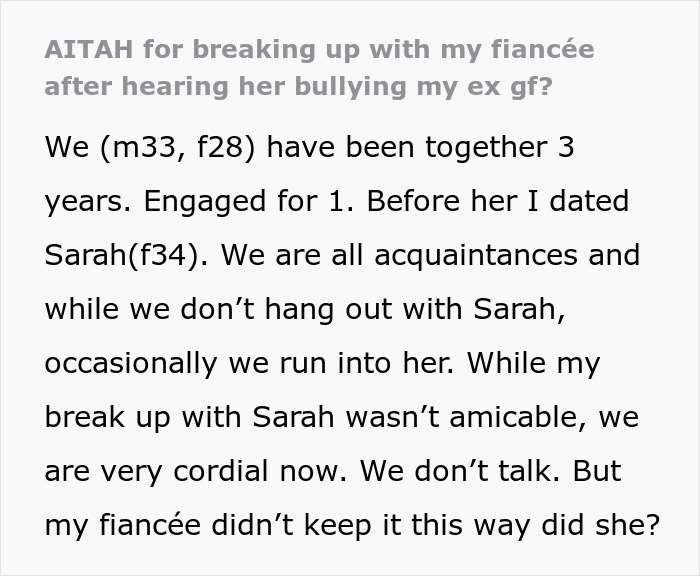

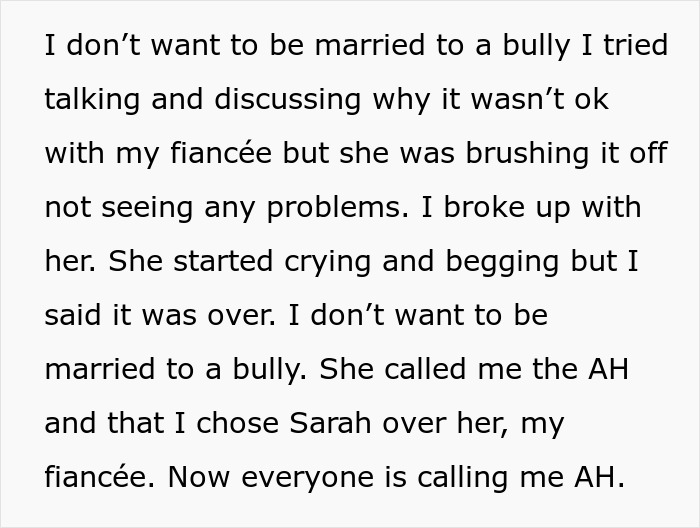

Image credits: Liza Summer / pexels (not the actual photo)

Image source: cChance_Digc
An adult bully can regularly make their target feel oppressed, belittled, and humiliated

Image credits: Keira Burton / pexels (not the actual photo)
The American Psychological Association (APA) defines bullying as “a form of aggressive behavior in which someone intentionally and repeatedly causes another person injury or discomfort.” An adult bully can regularly make their target feel oppressed, belittled, and humiliated.
Some of their behaviors typically include invasion of personal space, insults, public shaming, condescending jokes, threats, and unwanted personal contact. They can be an intimidating boss or colleague, a controlling romantic partner, a family member, or a social acquaintance.
Experts distinguish several types of adult bullies, one of which is material ones, who use their authority and power of finances in a boss’s or manager’s position to control or intimidate others. Another one is a verbal bully who shames and insults the other person with critical or teasing words. The language they use is often sexist, racist, or homophobic.
There’s also passive-aggressive bullying, which is the most unexpected, as they can act friendly but then suddenly change into a foe. They may roll their eyes, make rude facial expressions, and mock the other person by mimicking. Additionally, they engage in gossip, sarcasm, hurtful jokes, and the isolation of their targets.
The last two are a cyberbully and a physical bully. The former acts on their victims through a computer or any other electronic device, while the latter often exhibits violent physical acts like raising fists and throwing and breaking objects.
For many adult bullies, such tendencies originate from a troubled home

Image credits: Baptista Ime James / unsplash (not the actual photo)
Even though such oppression among adults is fairly common, there seems to be a shortage of both material and conversation surrounding it. Some suggest that we talk less about it because it might have potentially bigger consequences than it did in childhood, like losing our job, relationships, or reputation. It’s also often more masked and sneakier, which might leave the person doubting if it’s truly happening.
However, discussing this issue should be less taboo, as it’s more contagious than good behavior and greatly affects our mental health. As a consequence, both the victim and the culprit often face behavioral problems, emotional issues, an increased risk of mental health conditions like depression, and reduced self-esteem.
Robert Sutton, author of “The A-hole Survival Guide: How to Deal With People Who Treat You Like Dirt,” explains that for many adult bullies, such tendencies originate from a troubled home. “Perhaps they had role models around them who treated others with disrespect and advised that to get ahead in life, you should crush others and treat them like dirt,” he says. In fact, many bullies don’t feel good about themselves, and the only way they can feel good is to put others down.
Communications professor Preston Ni suggests that one of the smartest ways a person can deal with an adult bully is to consider their background. “And if you know the person came from a traumatic family environment, showing some empathy and understanding in no way excuses the bullying behavior, but it reduces the intimidation factor,” she says. When you stop being scared of them, it helps you handle the situation better.
Deciding on how to further react depends on the frequency and severity of the toxic behavior. If it’s not excessive or harmful, like seeing them occasionally at work or yearly family gatherings, it might be a good idea to simply avoid the person. However, if their actions become chronic and disrupt your well-being, you might want to consider escaping, such as by moving your desk or completely restricting your interactions with them. Documenting their offenses might also be a good option, as they may be needed later to file a complaint at work.
The author happily chatted with people in the comments, revealing even more about the situation




The fiancé was titled as not wrong by most
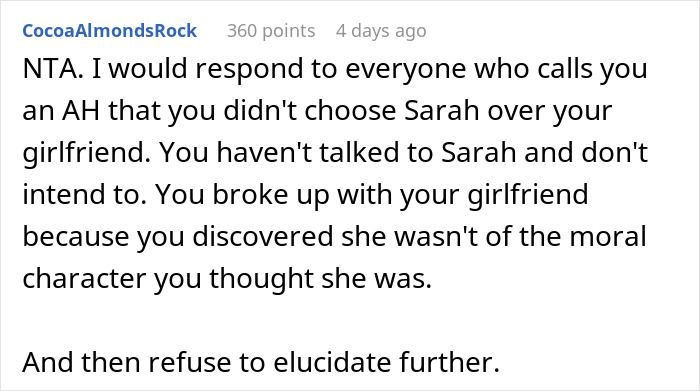
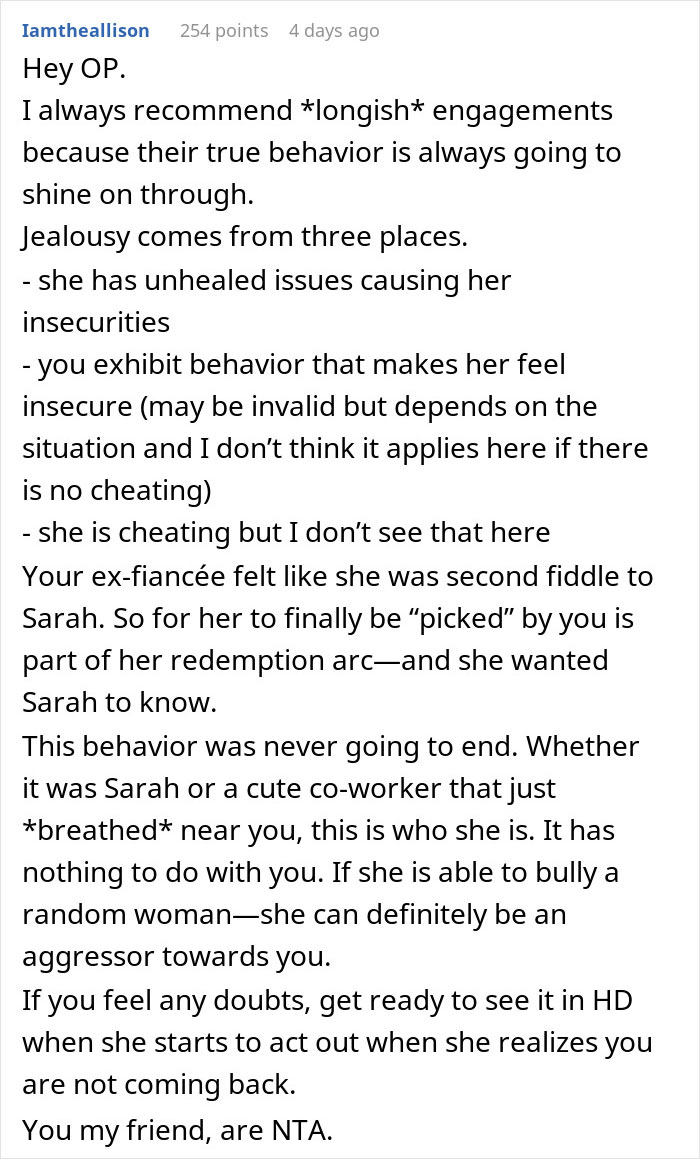
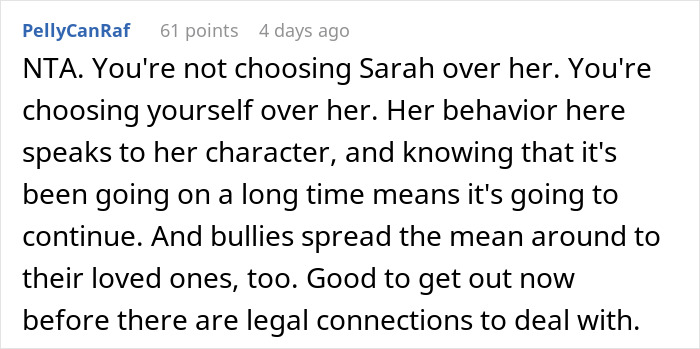


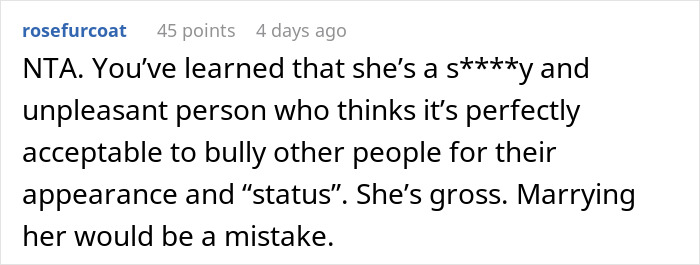



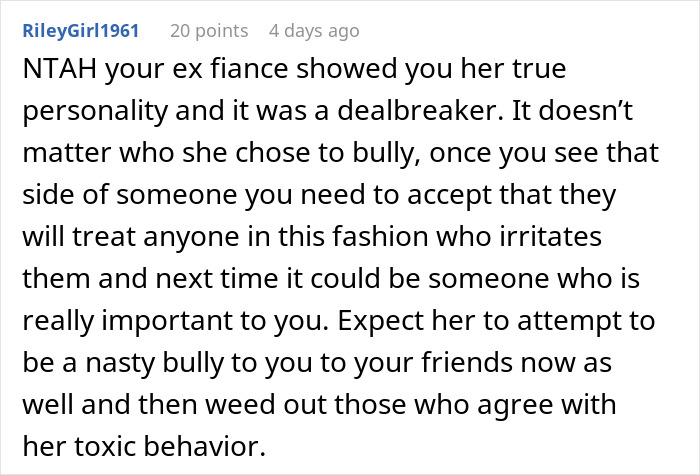
However, some thought that breaking up over such a thing wasn’t fully considerate



